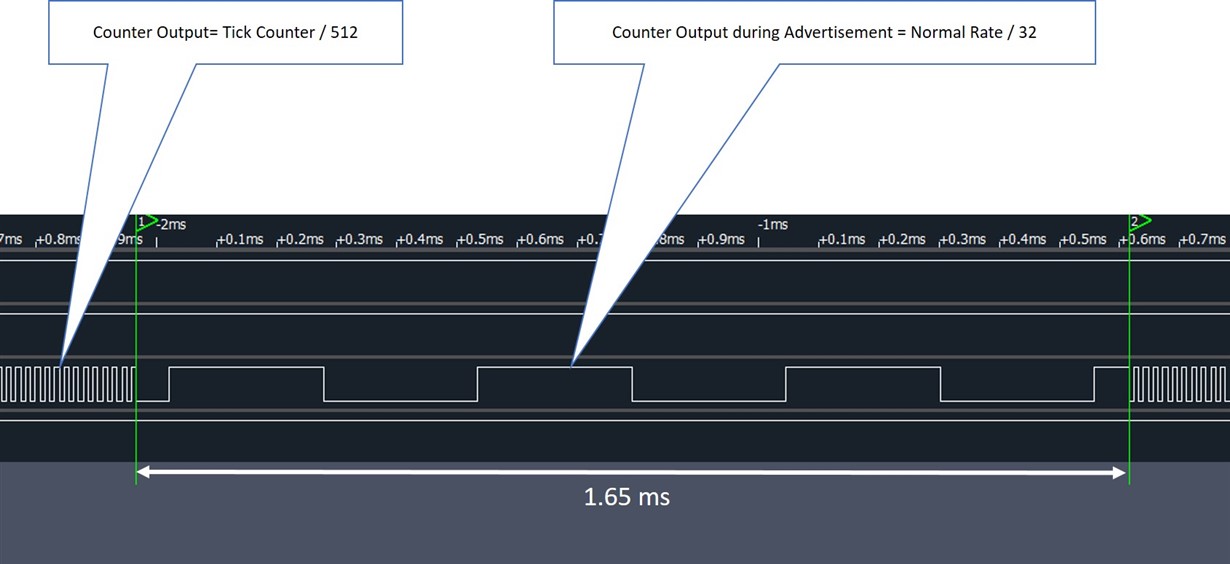Hi,
I am using the CC2540 with the BLE Stack version 1.4.2.2 and using IAR workbench version 9.30. My application using serial port communication. It happens that when the BLE is advertising the interrupt blocks for a very long time and characters received from the serial port are lost. This problem also happen during a connection but it is much less frequent.
You can see an example in the picture below, I recorded the serial port input and use an out port to demonstrate inert and another to notify whenever there is an unexpected input. In the first example the interrupt was blocked for ~100uS the second show an example where the interrupt blocked for 350uS and short time after that for 1.39mS . It is clear to me this is a bug in the BLE stack, interrupts should not be blocked for so long. I assume I am not the first one encountered with this issue. I can think of some workarounds, however each workarounds has limitations and not always implementable in my system.
My question is if you have any intention to fix these serious BLE library bugs and if so can you provide and expected date for such a fix?
Thanks,
Eitan



